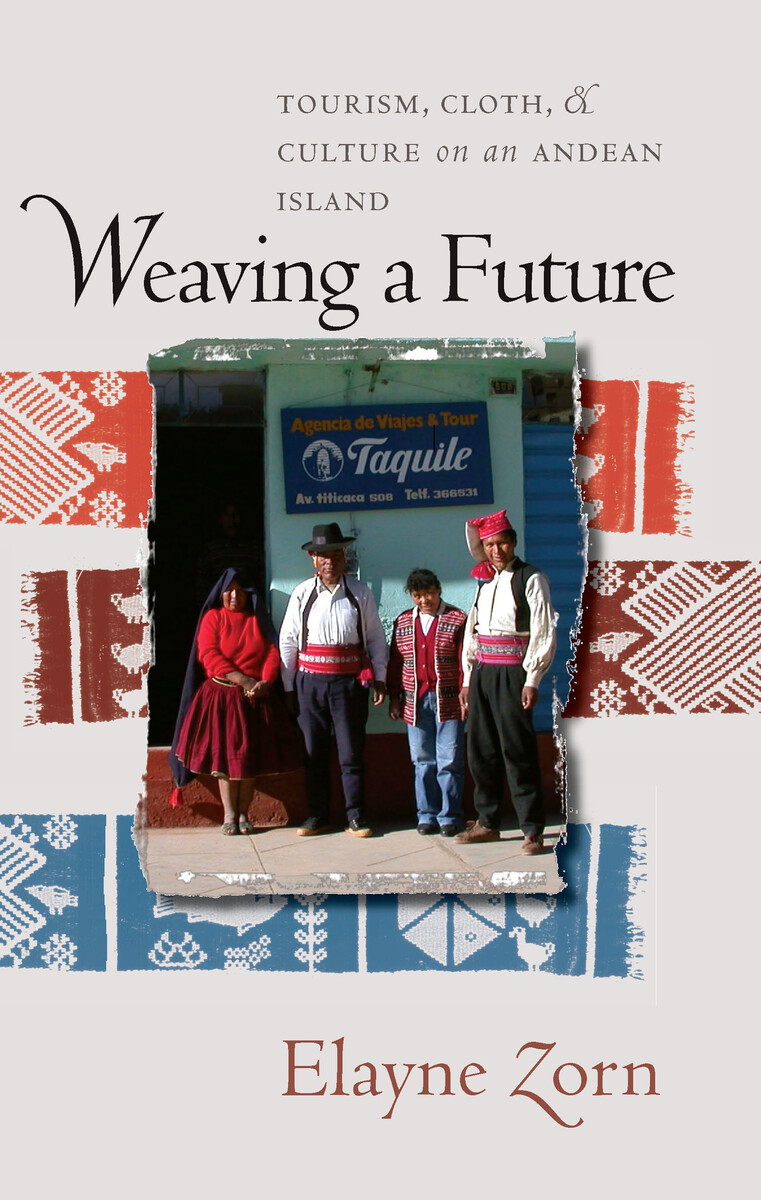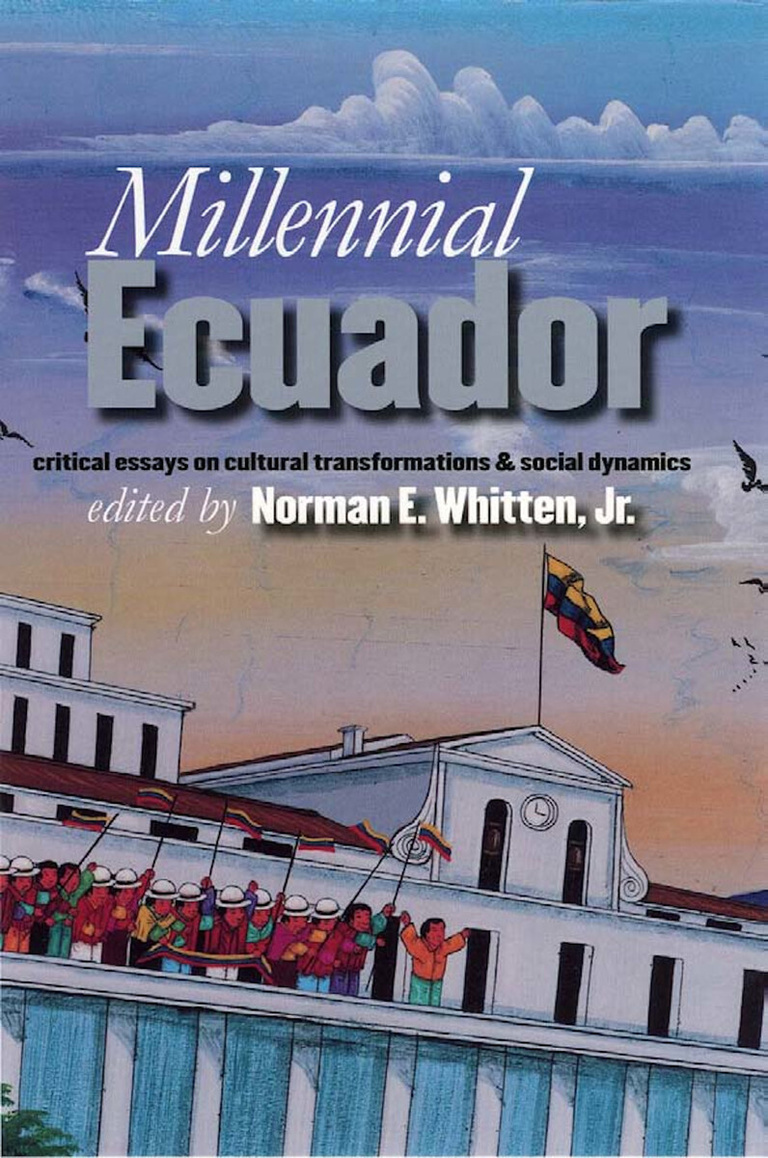The people of Taquile Island on the Peruvian side of beautiful Lake Titicaca, the highest navigable lake in the Americas, are renowned for the hand-woven textiles that they both wear and sell to outsiders. One thousand seven hundred Quechua-speaking peasant farmers, who depend on potatoes and the fish from the lake, host the forty thousand tourists who visit their island each year. Yet only twenty-five years ago, few tourists had even heard of Taquile. In Weaving a Future: Tourism, Cloth, and Culture on an Andean Island, Elayne Zorn documents the remarkable transformation of the isolated rocky island into a community-controlled enterprise that now provides a model for indigenous communities worldwide.
Over the course of three decades and nearly two years living on Taquile Island, Zorn, who is trained in both the arts and anthropology, learned to weave from Taquilean women. She also learned how gender structures both the traditional lifestyles and the changes that tourism and transnationalism have brought. In her comprehensive and accessible study, she reveals how Taquileans used their isolation, landownership, and communal organizations to negotiate the pitfalls of globalization and modernization and even to benefit from tourism. This multi-sited ethnography set in Peru, Washington, D.C., and New York City shows why and how cloth remains central to Andean society and how the marketing of textiles provided the experience and money for Taquilean initiatives in controlling tourism.
The first book about tourism in South America that centers on traditional arts as well as community control, Weaving a Future will be of great interest to anthropologists and scholars and practitioners of tourism, grassroots development, and the fiber arts.
“Elayne Zorn describes the successful efforts of the Taquileans to control their lands, their culture, and their future. The issues of retaining cultural identity are at the forefront of anthropology today, and few anthropologists offer so rounded a view of these issues. It is an extraordinary testimony to Zorn’s intelligence, dedication, and persistence that she has been able to transform so unusual a case—a group of weavers and farmers on an island in a remote lake—into a story of such universal fascination.”—Ben Orlove, editor, Current Anthropology
“Zorn’s book is an extraordinary achievement. It integrates in one engaging and highly readable account a thoughtful description and analysis of the weaving tradition on the Island of Taquile (Lake Titicaca, Peru) with informed and wide-ranging commentary on the commoditization of those weavings, the role of tourism in the transformation of the tradition over time, and the highly gendered nature of textile production and commentary among the weavers of Taquile. In its blending of the traditional with the transnational, Weaving a Future sets a new standard for research on Andean craft and commodity production. This will be an important work for many years to come.”—Gary Urton, Dumbarton Oaks Professor of Pre-Columbian Studies, Harvard University
“Elayne Zorn’s book on Taquile Island provides an insider’s anthropological view of one of South America’s most renowned and successful ecotourism communities. Zorn has been an acute observer of Taquile’s evolution as a tourist site for almost thirty years, and her vivid, personal, nuanced, and insightful writing brings to life this marvelous indigenous development story.”—Kevin Healy, Inter-American Foundation and George Washington University



